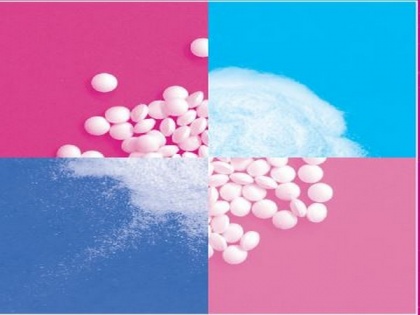WHO warns against artificial sweeteners, says they have no long-term benefits
By ANI | Published: May 16, 2023 02:27 PM2023-05-16T14:27:02+5:302023-05-16T14:30:04+5:30
Geneva [Switzerland], May 16 : The World Health Organization (WHO) has released a new guideline cautioning the use of ...

WHO warns against artificial sweeteners, says they have no long-term benefits
Geneva [Switzerland], May 16 : The World Health Organization (WHO) has released a new guideline cautioning the use of non-sugar sweeteners for controlling body weight or reducing the risk of non-communicable diseases.
The recommendation of the WHO is based on the findings of a systematic review of the available evidence which suggests that the use of artificial sweeteners does not confer any long-term benefit in reducing body fat in adults or children.
Results of the review also suggest that there may be potential undesirable effects from long-term use of such artificial sweeteners increased risk of type 2 diabetes, cardiovascular diseases, and mortality in adults.
Common non-sugar sweeteners include acesulfame K, aspartame, advantame, cyclamates, neotame, saccharin, sucralose, stevia and stevia derivatives.
"Replacing free sugars with non-sugar sweeteners does not help with weight control in the long term. People need to consider other ways to reduce free sugars intake, such as consuming food with naturally occurring sugars, like fruit, or unsweetened food and beverages," said Francesco Branca, WHO Director for Nutrition and Food Safety.
"Non-sugar sweeteners are not essential dietary factors and have no nutritional value. People should reduce the sweetness of the diet altogether, starting early in life, to improve their health."
The recommendation, however, does not apply to personal care and hygiene products containing non-sugar sweeteners, such as toothpaste, skin cream, and medications, or to low-calorie sugars and sugar alcohols (polyols), which are sugars or sugar derivatives containing calories.
Disclaimer: This post has been auto-published from an agency feed without any modifications to the text and has not been reviewed by an editor
Open in app